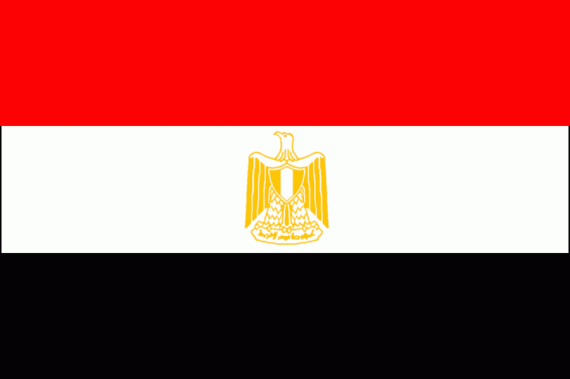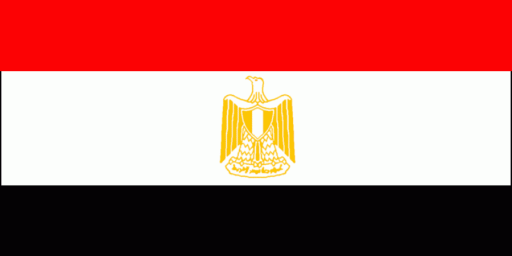Egyptian Military Expanding Power
Not surprisingly, the Egyptian military seems to be expanding its power and many are wondering what that means for the promises of more democracy:
CAIRO — Egypt’s military rulers are moving to assert and extend their own power so broadly that a growing number of lawyers and activists are questioning their willingness to ultimately submit to civilian authority.
Two members of the military council that took power after the ouster of former President Hosni Mubarak said for the first time in interviews this week that they planned to retain full control of the Egyptian government even after the election of a new Parliament begins in November. The legislature will remain in a subordinate role similar to Mr. Mubarak’s former Parliament, they said, with the military council appointing the prime minister and cabinet.
“We will keep the power until we have a president,” Maj. Gen. Mahmoud Hegazy said. The military had pledged in formal communiqués last March to hold the presidential election by September. But the generals now say that will come only after the election of a Parliament, the formation of a constitutional assembly and the ratification of a new constitution — a process that could stretch into 2013 or longer.
A transition to civilian rule before and not after the drafting of a new constitution was also a core component of a national referendum on a “constitutional declaration” that passed in March as well. The declaration required that the military put in place democratic institutions and suspend a 30-year-old emergency law allowing arrests without trial before the drafting of the constitution to ensure a free debate. But by extending its mandate, the military will now preside over the constitutional process.
The military’s new plan “is a violation of the constitutional declaration,” Tarek el-Bishry, the jurist who led the writing of that declaration, wrote this week in the newspaper Al Sharouk, arguing that the now-defunct referendum had been the military’s only source of legitimacy.
The United States, where concerns run high that early elections could bring unfriendly Islamists to power and further strain relations with Israel, has so far signaled approval of the military’s slower approach to handing over authority. In an appearance this week with the Egyptian foreign minister, Secretary of State Hillary Rodham Clinton urged an early end to the emergency law but called the plan for elections “an appropriate timetable.”
Within Egypt, however, the schedule is a fresh source of tension between the military council and civilian political leaders from liberals to Islamists. Political leaders say they were shocked last week when two dozen Coptic Christian demonstrators died in clashes with soldiers guarding a government building. Some protesters were run over by military vehicles and others were shot.
Confidence in the Supreme Council of the Armed Forces — known as SCAF — reached a breaking point, many political leaders say, three days later when the military council placed blame for the deaths on the aggression of the demonstrators and denied that the soldiers used live ammunition. The military has blocked any civilian investigation into the clash.
“No political party can trust the SCAF now,” said Emad Gad, an analyst at the state-financed Al Ahram research group and now an active member of the Social Democratic Party. “We are seeing the real face of the SCAF, after the lifting of the mask.”
Citing a series of public hints as well as pattern of actions, activists and analysts now say they believe that the military is seeking to slow down a democratic transition until it feels certain that its position and privileges will remain unassailable even under civilian rule. Some here have advocated offering the military special rights including immunity from prosecution in civilian courts, protection from oversight of their operations and budget, and a writ to intervene in political affairs in the name of protecting the secular character of the government. “It is an open secret” that carving out special powers is the main goal of the military, said Hossam Bahgat, executive director of the Egyptian Initiative for Personal Rights.
The postponement of the handing over of power until after the presidential election, he said, was “a clear sign that the SCAF did not want a civilian president who under the current constitutional declaration would have power over the army for the first time since the 1952 revolution.”
Given the fact that the military has been at the center of Egyptian politics since the Sadat era, it’s not at all surprising that they’d be trying to protect their power. The question is how the people on the street are going to react to this. Already, we’ve seen plenty of indication that the masses that gathered in Tahrir Square in February are not happy with the way in which things have proceeded so far, at retreat like this isn’t likely to sit well.



![Military Coup Underway In Egypt [Update: Morsi Deposed]](https://otb.cachefly.net/wp-content/uploads/2011/02/egypt-flag3-512x256.gif)


It will be interesting to see how the new government of Egypt gets on.
No one could have predicted the Arab Spring but it was long overdue.
The leader of Syria must be a very worried man now!
Egyptian Cotton Sheets